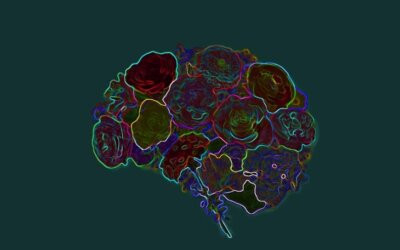A Foundation for Neurodiversity-Affirming Service Delivery, Supervision, and Training
The underlying philosophy of Scattergram, which permeates all of our services and training, is embodied in our trademarked A.C.C.E.P.T. Program. The letters stand for Assertive, Curious, Connected, Exceptional, Perceptive, and Tolerant. This name is the brainchild of Amber Riehl who invented it while doing her MSW student placement with my practice in 2021. Amber and I co-created and co-facilitated the first A.C.C.E.P.T. group for neurodivergent adults over age thirty in 2022.
The A.C.C.E.P.T. program consists of a three-part framework for service delivery, supervision, and training:
- understand your neurodivergent operating system (NDOS),
- communicate assertively and effectively across neurotypes, and
- connect with broader neurodiversity-affirming communities and narratives.
By adulthood, every neurodivergent person has received hundreds or thousands of negative messages about their differences in thinking, feeling, perceiving, or behaving. As a result, most will have spent years trying to hide the parts of themselves that are not valued and trying to fit in by imitating the social behaviours of those around them.
Curiosity
Therefore, the first part of any A.C.C.E.P.T. Program group or training focuses on the letter C for curiosity. We get curious about neurodivergent operating systems through an affirming rather than disordered lens, seeking out the strengths as well as challenges that come with having a differently-wired brain and nervous system.
Exceptionality and Perception
Following closely on the heels of C for curiosity are E for exceptionality and P for perception. Broadly, in what ways does the atypical brain diverge from the statistically normal or neurotypical brain? When training professionals, we teach them to recognize neurodivergence in their client population and modify their physical environment, communication strategies, and interventions to be less hostile and more helpful. In what ways does a single individual’s neurodivergent brain diverge, specifically, from other neurotypical and atypical brains? We carry out a fine-grained examination of the individual’s social, emotional, mental, sensory, and physical exceptionalities, considering both advantages and disadvantages. In the process of understanding, whether for clients or professionals, a shift in point of view is required to normalize the diversity of brain types.
Assertive and Connected
In part two of the A.C.C.E.P.T. Program, we move back to the beginning of the letters A for assertive and C for connected. It is pretty hard to build genuine connections and nearly impossible to assert yourself in social situations when you’re in hiding and don’t really know who you are. But even when you know and accept yourself, it can be hard to communicate across neurotypes. It takes strong skills in assertiveness to explain your social or sensory differences and why, for example, you need different conditions in order to be more productive at work or to explain to your friends or family why you can’t eat at loud restaurants.
Assertiveness and self-understanding provide an alternative to masking and place more responsibility on neurotypicals to understand and adapt to your communication style, thinking style, and emotional and sensory needs, allowing you to build more genuine connections. You may even find yourself becoming more politically active, challenging deficit-based narratives, and making connections with organized neurodivergent communities.
Tolerance
The final part of the A.C.C.E.P.T. framework is the T for tolerance. By tolerance, we are referring to radical acceptance of the things we cannot change. We all have things about ourselves we’d like to change and can’t. We also have no control over some things in our social world and work lives. Radical acceptance is not the same as giving in and internalizing negative stereotypes or accepting injustice. It is the simple recognition of what is without fighting against it in unproductive or self-defeating ways. It’s being able to withstand the tension of holding opposing ideas in mind.
The world is beautiful and messed up. Being out of step with social norms is aggravating and also liberating. Radical acceptance is accepting ourselves and our world as it is today while trying to make it better for tomorrow. And that is why our letters add up to ACCEPT, because we, at Scattergram, accept our flawed selves and our flawed world as we strive to be even better and create a better world. A world where neurodivergence is normal.
The Scattergram Mission
Promote the well-being of neurodivergent people and their loved ones through interdisciplinary, neurodiversity-affirming care, supervision, and training.
Our Vision
Unleash divergent ways of thinking and perceiving that our world needs to solve its problems, big and small.
Our Values:
- Neurodivergence is a difference in brain type, not a disorder.
- Treatment models, past and current, that view neurodivergence as a disorder, and attempt to ‘normalize’ neurodivergent children, youth, and adults, do harm.
- The perceptions and experiences of neurodivergent individuals are immovably real and need to be included in care planning and delivery.
- People with the privilege of being neurotypical, and who buy into dominant narratives about neurodivergence, risk doing harm out of ignorance, indifference, or an inability to experience compassion and empathy for people who are wired to think differently.
- A neurodiversity-affirming paradigm in mental health, health, education, the workplace, and all institutions is necessary for well-being, growth, equity, diversity, and inclusion for all.



